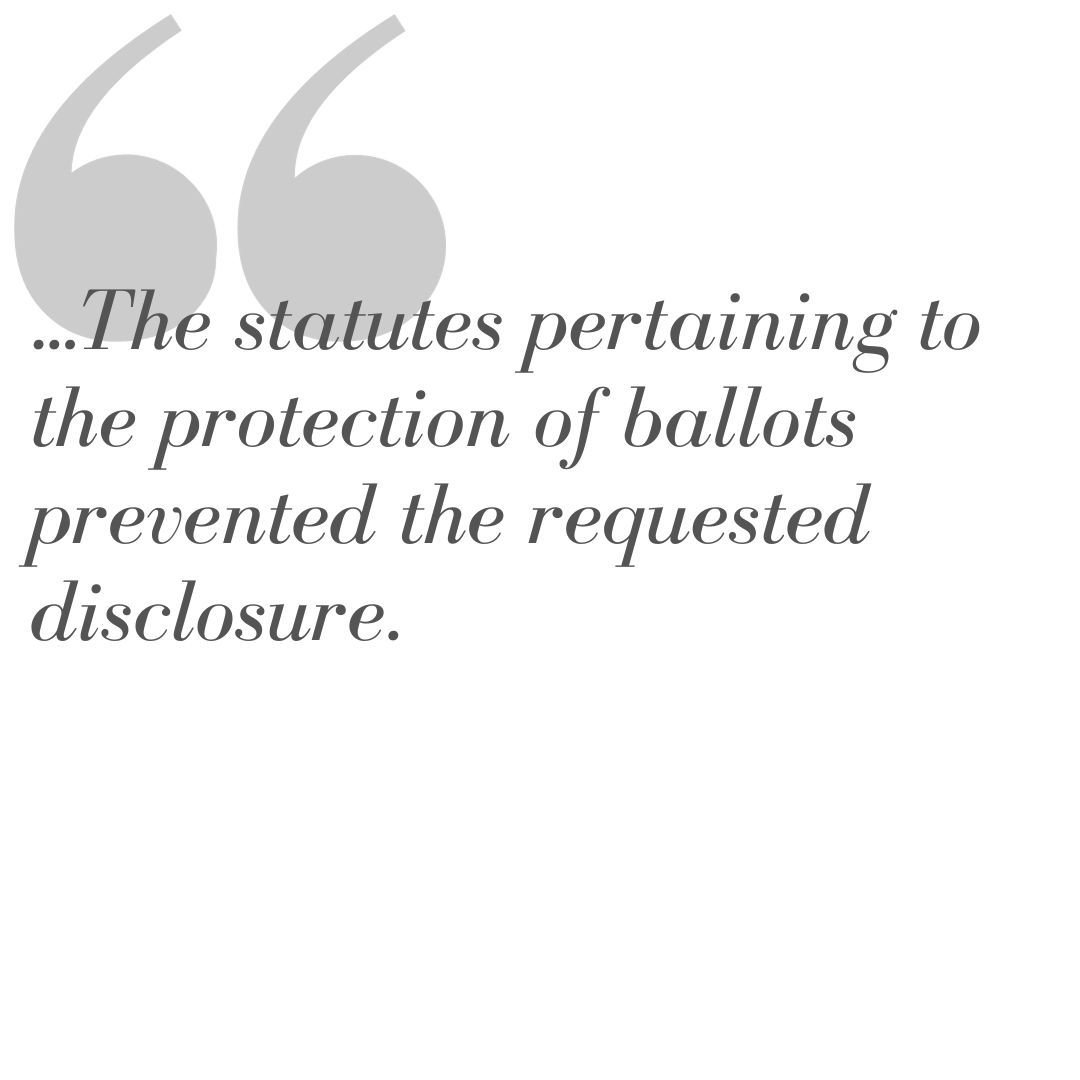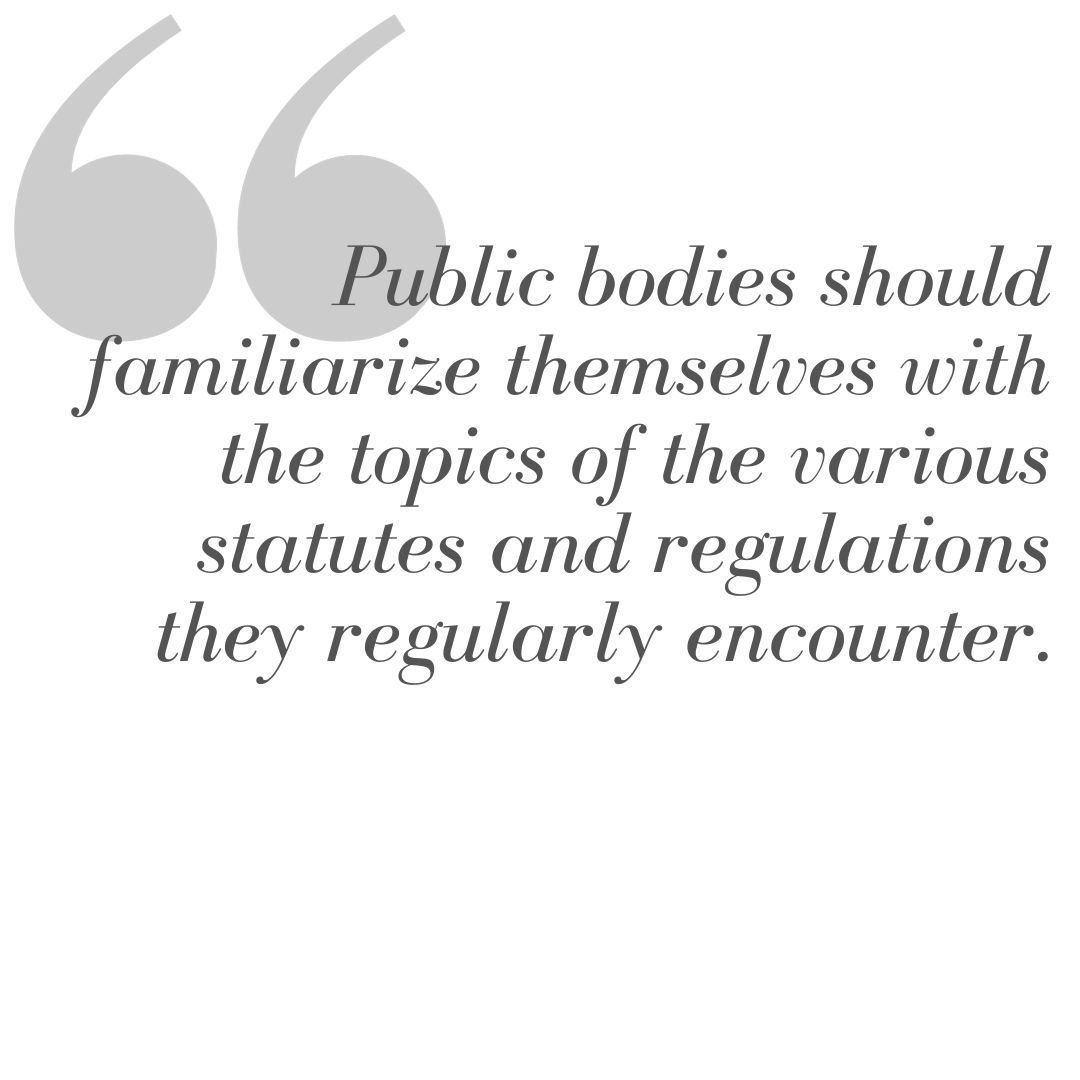In February 2023, the Arizona Court of Appeals issued an opinion in Audit-USA v. Maricopa County, 525 P.3d 279 (Ariz. App. 2023) [CA-CV 22-0254], addressing the fundamentals of Arizona’s public records laws.
Background
In February 2021, Audit-USA made a public records request to the Maricopa County Board of Supervisors for digital images and associated data of ballots cast in the November 2020 election. Maricopa County did not respond to the request, so Audit-USA filed suit under A.R.S. § 39-121.02, which governs recourse when a public body denies access to public records.
Maricopa County provided Audit-USA with a copy of some of the requested data, but withheld the digital images of the cast ballots. Maricopa County subsequently filed a motion to dismiss on the grounds that A.R.S. § 16-625 expressly prohibits the circulation of digital images of ballots.
Ultimately, the trial court granted the dismissal, and the Court of Appeals upheld it.
 |
Key Takeaways
1. The Court of Appeals found that it did not need to reach the question of whether public records law applies because the statutes pertaining to the protection of ballots prevented the requested disclosure.
|

- A.R.S. § 16-624 requires paper ballots to remain “unopened and unaltered” at a “secure facility” for 24 months following the close of an election.
- A.R.S. § 16-625 requires electronic data and digital images of ballots to be protected from both “physical and electronic access,” with security measures equal to or greater than those for paper ballots.
- The Court read A.R.S. § 16-625 to categorically prohibit disclosure of digital images and ballots, observing that “[t]here may be circumstances in which disclosing digital images of cast ballots is authorized by court order, but those do not include general disclosures under a public-records request.” 254 Ariz. 536, ¶ 12, 525 P.3d 279, 282 (App. 2023).
2. Besides clarifying the statutory scheme governing election records, the Court’s opinion contains a second significant statement. The Court stated that it did not need to address the applicability of public records laws because the issue of disclosure of ballots was definitively resolved by statutory imperative. This is consistent with Arizona public records precedent that states Arizona’s public records laws are not unlimited, and stands for the proposition that if the topic of a public records request is otherwise addressed by statute, such statute takes precedence over the public records process. It stands to reason that other laws prohibiting the disclosure of certain information would act in the same way and similarly take precedence over the public records analysis.
Many Arizona laws prohibit disclosure of information, such as personal identifying information, medical information, or utility customer information. For example:
- A.R.S. § 39-123.01 addresses the personal identifying information of a witness to a crime;
- A.R.S. § 44-1373 addresses disclosure of personal identifying information more generally;
- A.R.S. § 12-2292 addresses the disclosure of medical records and payment records; and
- A.R.S. § 44-1376.01 addresses utility customer information.
| Based on the Court’s opinion in Audit-USA v. Maricopa County, a public body responding to a public records request should first ensure the subject matter requested is not already addressed in another statutory scheme that would supersede the public records analysis. |
 |
Public bodies should familiarize themselves with the topics of the various statutes and regulations they regularly encounter, may be subject to, and may provide a basis for limiting their response and protecting confidential information. When they receive a public records request, they can more easily determine whether there is a relevant statute that would prevent them from completing the records request. Training and updates for staff involved in responding, as well as administrative staff in general, is also key.
[View source.]